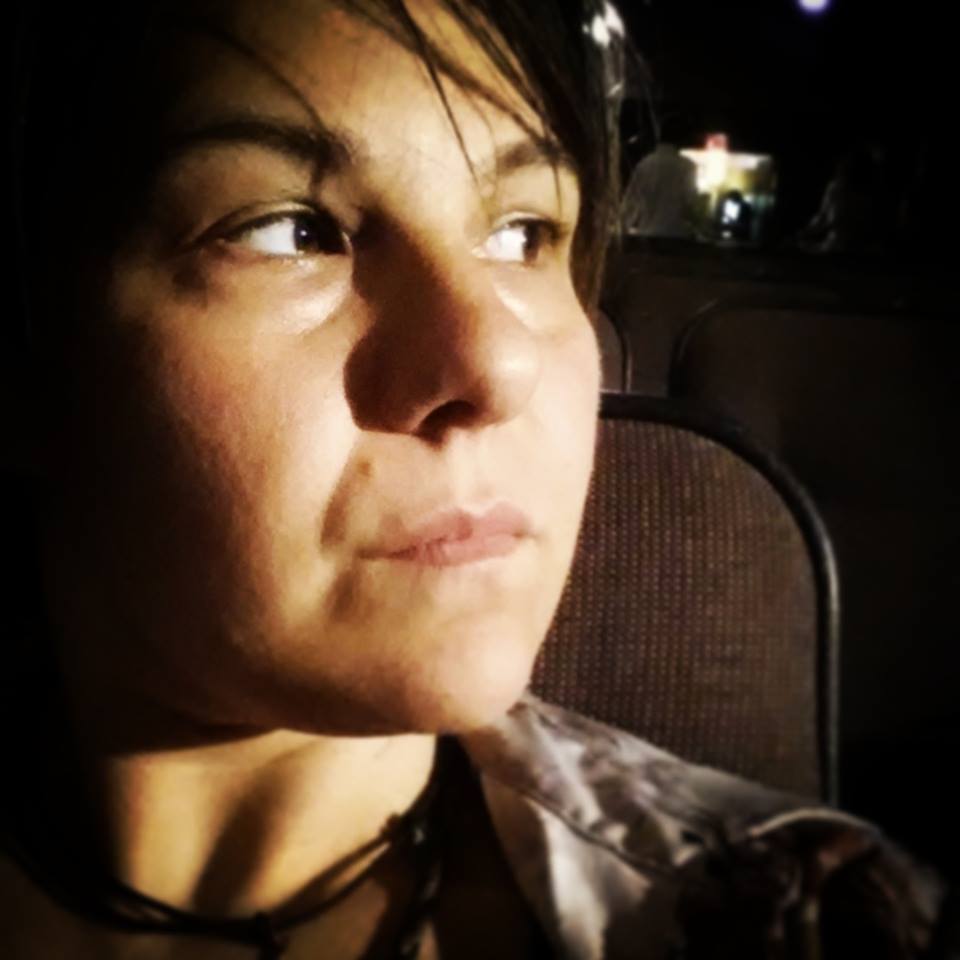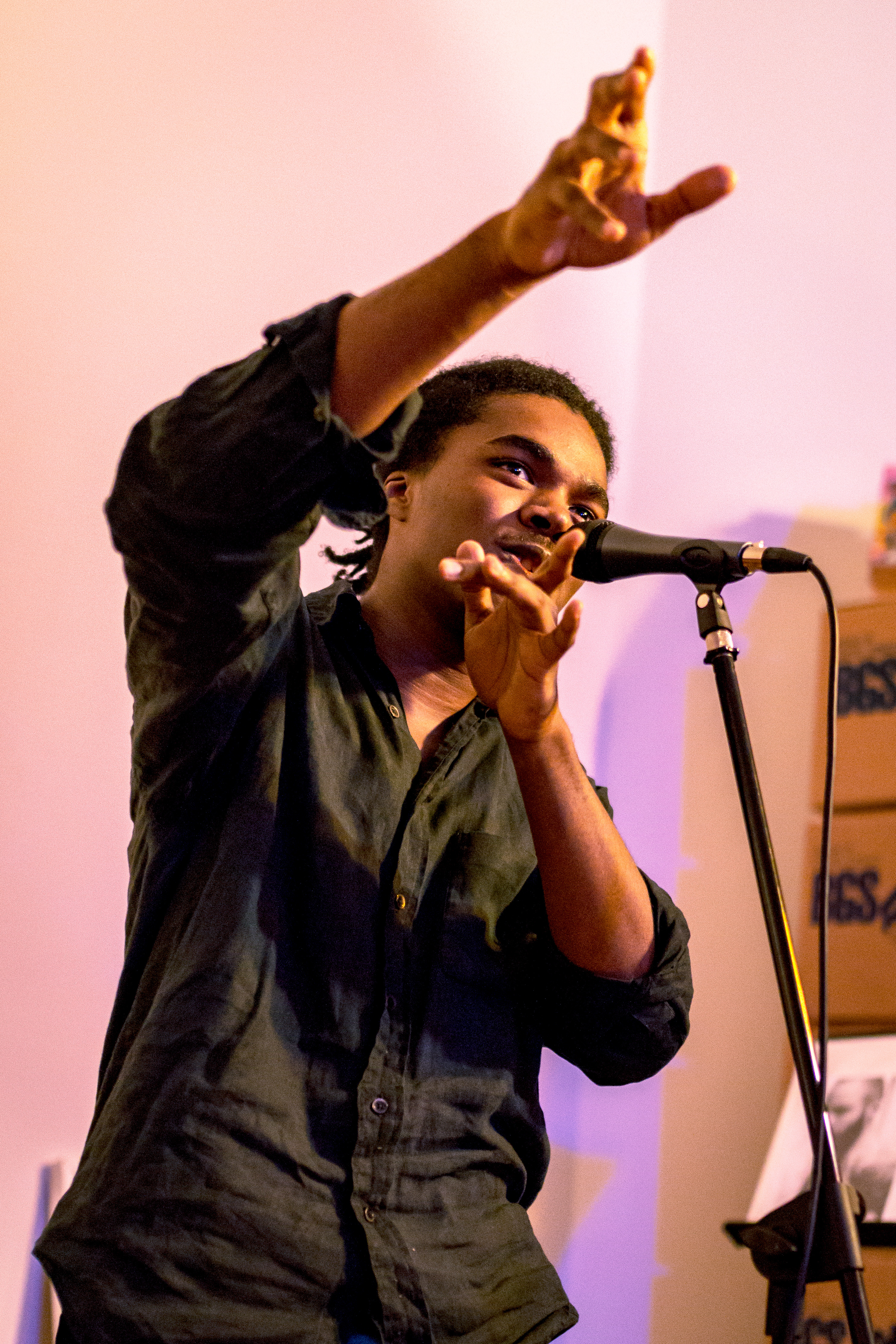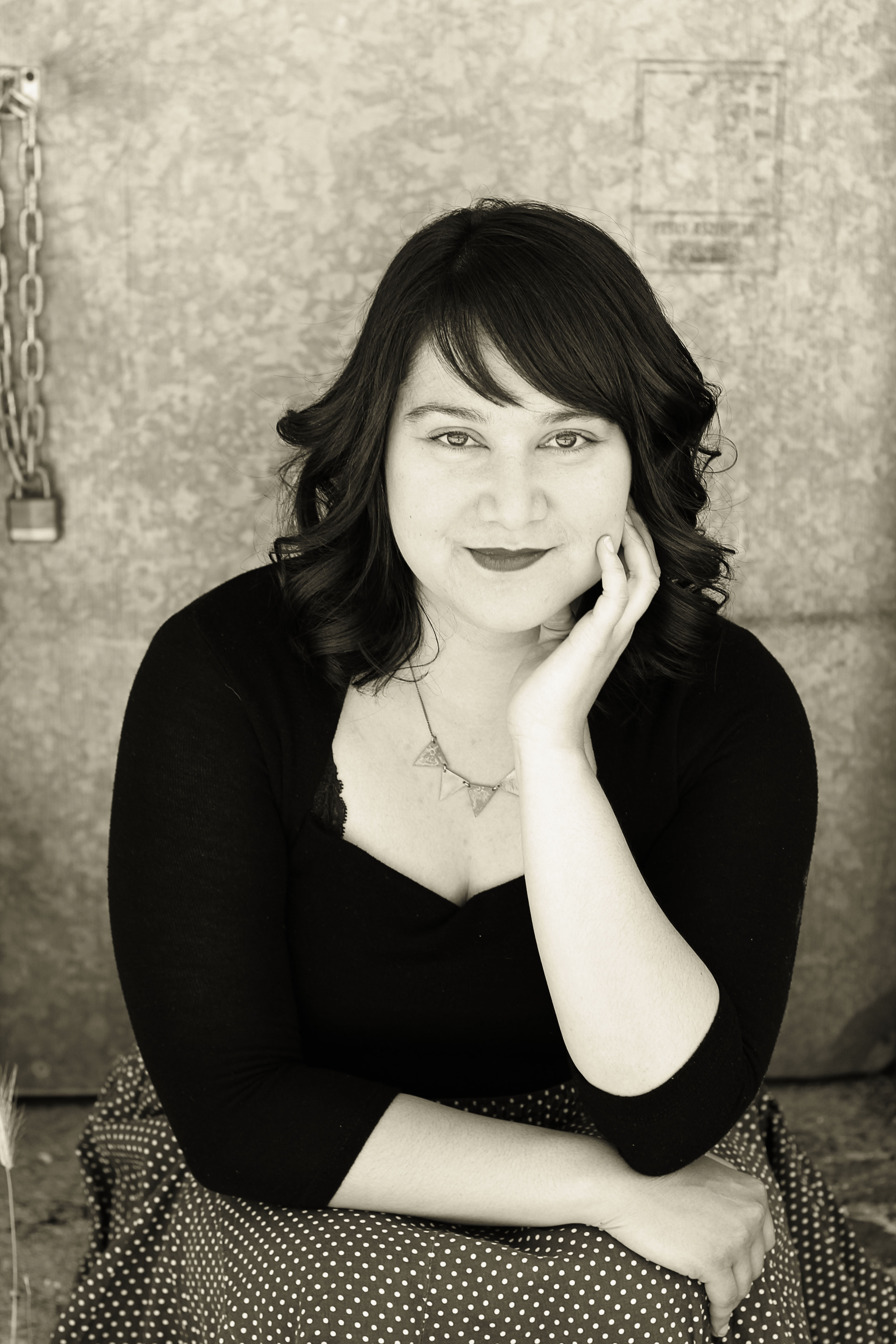Union Square Slam: Putting the Unity Back in Community
Cecily Schuler received their MFA in Writing from the Pratt Institute in Brooklyn, New York. Having attended both the Bread Loaf Writers’ Conference and the Vermont Studio Center, Schuler has had their work featured in the Offing, Fairy Tale Review, Wicked Banshee, Ellipsis, and Duende, and anthologized in great weather for MEDIA and Fire Stories: Further Thoughts on Radically Rethinking Mental Illness. Schuler's chapbook, 296, chronicling the author's experience living with multiple mental health diagnoses, is available from Next Left Press. Schuler cofounded and manages Union Square Slam, a weekly poetry open mic/slam in the heart of New York City.

What makes your program(s) unique?
I would say that, while we share components of each, we are not your average open mic, poetry reading, or poetry slam. Union Square Slam (USS) was created to not only serve the local and national slam poetry circuit, but more so to provide a creative space for our local poets and authors to branch out, foster, and showcase their particular talents and interests. We are looking to showcase the broad range of overlapping scenes here in New York City, as well as poetic style and talents from other regions of the country.
We encourage audience engagement in a number of ways: “If You Feel Something, Say Something.” If someone says something on the mic that moves you, it’s the culture of the show to respond to that movement through snapping/clapping, moans/groans, shouting and talking back. On paper that sounds like a ruckus, but at the show it can be encouraging and empowering. We also offer writing workshops with highly skilled facilitators before the show each week. Sometimes we ask for donations that go towards the facilitator, but more often than not, the workshops are free! All of the organizers are also working artists, and we know how challenging it can be to keep creating while volunteer organizing on top of working a 9-5. These weekly workshops are just another way we hope to generate community-based quality work for our show attendees.

What recent project and/or program have you been especially proud of and why?
We inherited a venue and show day/time from another open mic/poetry slam in January 2015. Over time, it became clear that the venue and our show were growing in different directions artistically and aesthetically. In November of the same year, we switched venues to our current home in the Bureau of General Services - Queer Division. It was such a relief in so many ways: not only were we in a venue dedicated solely to literary and visual arts, we could now serve all ages and accommodate folks who use wheelchairs. We have managed to build a steady and returning audience, book and fund our features (thanks P&W!!) and have a successful slam season, culminating in USS sending our very first team to the National Poetry Slam in Decatur (Atlanta), Georgia this August. It was a lot of rigmarole, and yet people have come out of the woodwork to offer us support in countless ways. (Speaking of which, please consider helping USS reach its fundraising goals for the team by donating here.)
How do you find and invite readers?
Part of Union Square Slam’s mission is to amplify voices of the oppressed. We aim to book features who self-identify in one or more of the following: people of color and/or queer/LGBTQIA and/or disabled/alter-abled/neurodiverse and/or poor/working class. We don’t go looking for artists who fit these criteria; rather, we check ourselves against this standard as we are booking. Our organizers have been involved in different aspects of not just the national slam scene, but other literary scenes throughout New York City, so between us, we’ve had a wide range of featured poets this year.
Photo: (top) Cecily Schuler. (bottom) Grand Slam Champ Nkosi Nkululeko. Photo credit: (bottom) Guangpyo David Hong.
Support for Readings & Workshops in New York City is provided, in part, by public funds from the New York State Council on the Arts, and the New York City Department of Cultural Affairs, with additional support from the Louis & Anne Abrons Foundation, the Axe-Houghton Foundation, the A.K. Starr Charitable Fund Trust, and the Friends of Poets & Writers.








